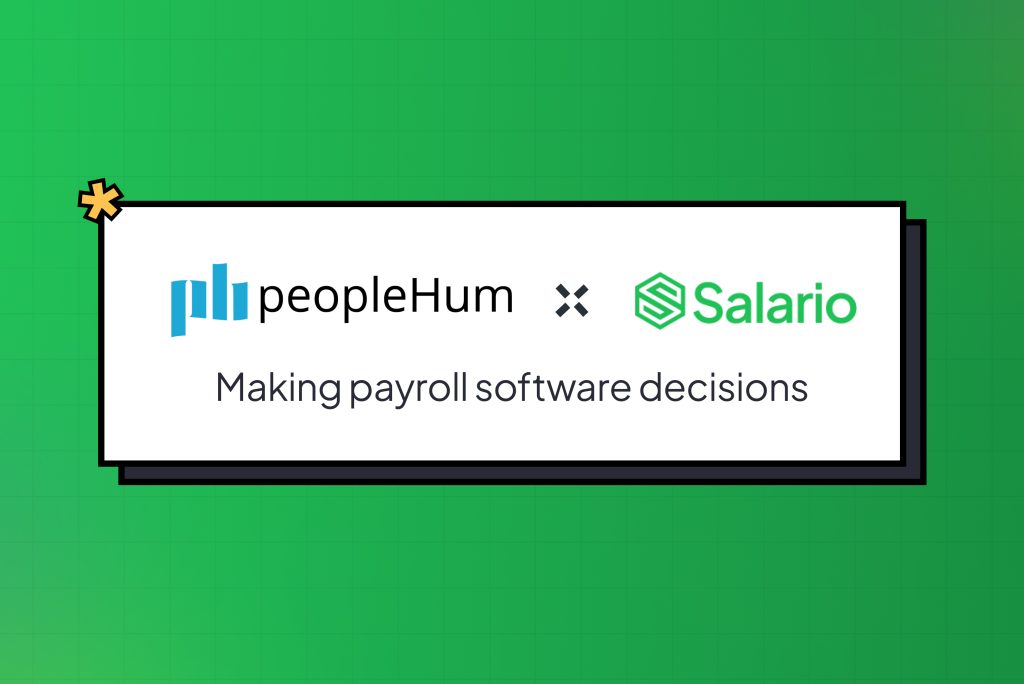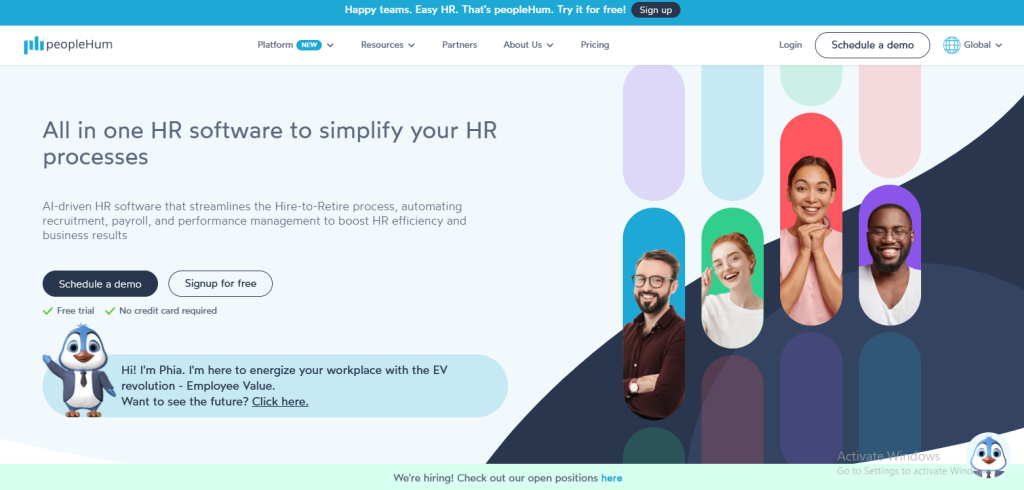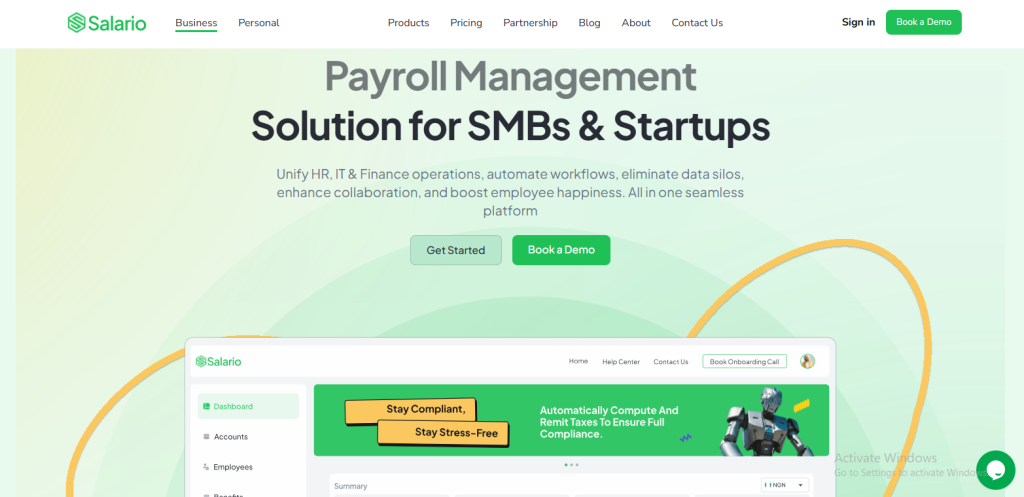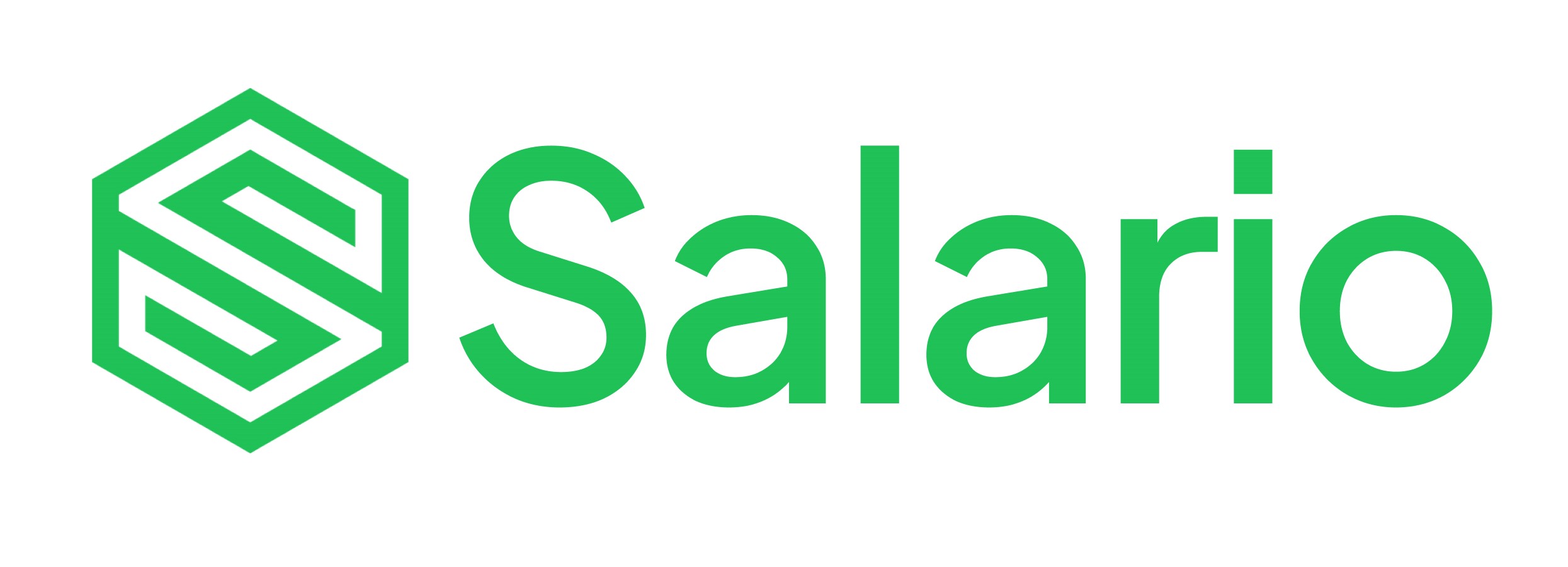
Businesses in Nigeria are navigating a dynamic economic landscape, where growth demands efficient, reliable systems to manage complex processes like payroll. For business owners and startups, choosing the right payroll software is critical to ensuring compliance with local regulations, streamlining operations, and keeping employees satisfied.
Two platforms that stand out in this space are PeopleHum and Salario. While both aim to simplify payroll and HR tasks, they cater to different needs and priorities. This article dives into a detailed comparison of PeopleHum vs Salario, exploring their features, strengths, and how they align with the needs of Nigerian businesses which will help you in your payroll software decision making.
Overview: PeopleHum Vs Salario
PeopleHum

PeopleHum is a cloud-based, all-in-one HR management platform designed to streamline a wide range of HR functions, including payroll, recruitment, onboarding, and employee engagement. Launched with a global audience in mind, it has gained traction for its comprehensive approach to human resource management. PeopleHum emphasizes automation and AI-driven insights, offering tools for performance management, analytics, and collaboration.. However, its global focus means it may require additional customization to fully align with Nigeria’s unique regulatory landscape.
Salario

Salario is a Nigerian-focused payroll and HR platform tailored specifically for the local market. Launched in 2020, it focuses on simplifying payroll processes while ensuring seamless compliance with Nigerian tax laws and regulations, such as PAYE, pension contributions, and NSITF remittances. Designed for startups, SMEs, and larger organizations, Salario prioritizes ease of use, affordability, and local relevance. Its intuitive design and free account for basic payroll functions make it particularly attractive for businesses operating in Nigeria’s diverse financial ecosystem. Salario’s localized approach and affordable plans have made it a favorite among Nigerian business owners.
Features Comparison: PeopleHum Vs Salario
Payroll Automation Capabilities: PeopleHum vs Salario

Payroll automation is the backbone of any modern payroll software, eliminating manual calculations, reducing errors, and saving time. Effective automation handles salary calculations, tax deductions, pension contributions, and payslip generation, allowing HR teams to focus on strategic tasks. Both PeopleHum and Salario offer automation, but their approaches differ in scope and execution.
PeopleHum
PeopleHum’s payroll automation is part of its broader HRMS suite, handling tasks like salary calculations, tax deductions, and payslip generation. It supports multiple pay cycles and integrates with its employee management tools to streamline processes. However, its automation is designed with a global perspective, which may require businesses to configure settings to align with Nigerian-specific requirements, such as state-specific PAYE rates or NHF contributions. While robust, this setup can add complexity for smaller businesses unfamiliar with payroll customization.
Salario
Salario excels in payroll automation tailored to Nigeria’s unique needs. It automates PAYE calculations based on state-specific rates, pension contributions, NSITF, and other statutory deductions with zero reported delays. Its bulk salary upload feature and automated payslip generation streamline payroll processing, even for businesses with irregular pay cycles, such as schools or NGOs. Salario’s automation is designed for Nigerian compliance, making it a perfect solution that requires minimal setup.
Local Compliance: PeopleHum vs Salario
Compliance with local tax and labor laws is non-negotiable for Nigerian businesses. Errors in PAYE remittances, pension contributions, or other statutory deductions can lead to penalties and reputational damage. The best payroll software ensures adherence to regulations like those set by the Federal Inland Revenue Service (FIRS) and PENCOM, while keeping up with regulatory updates.
PeopleHum
PeopleHum offers compliance management as part of its HR suite, maintaining accurate records and automating checks for labor laws. However, its global orientation means it may not be pre-configured for Nigeria’s specific requirements, such as FIRS-compliant tax reports or PENCOM pension formats. Businesses may need to invest time in customizing the platform to meet local standards, which could be a struggle for smaller teams without dedicated HR expertise.
Salario
Salario is purpose-built for Nigeria, with compliance at its core. It automatically handles PAYE, NHF, NSITF, and pension remittances, generating reports in formats that align with Nigerian regulatory standards. Its flawless track record with no reported delays in tax or pension payments ensures businesses avoid fines and maintain trust with employees. Salario’s deep understanding of Nigeria’s regulatory landscape makes it the go-to choice for compliance-focused businesses.
Ease of Use: PeopleHum vs Salario
A user-friendly interface is critical for quick adoption and minimal training time, especially for businesses with limited technical expertise. Payroll software should be intuitive, allowing HR teams, payroll managers, and even non-technical users to navigate with ease.
PeopleHum
PeopleHum’s interface is clean and modern, designed to cater to a global audience. It offers a centralized dashboard for payroll, employee data, and analytics, but its broad feature set can feel overwhelming for smaller teams focused solely on payroll. Some modules may require additional training to fully utilize, particularly for businesses new to HR software. Its global design also means users may need to navigate through features irrelevant to Nigerian operations.
Salario
Salario prioritizes simplicity, with a clean, uncluttered interface tailored to Nigerian workflows. Its intuitive design allows users, from HR officers to employees, to get started with minimal onboarding. Features like bulk salary uploads and self-service portals are accessible in just a few clicks, making it ideal for SMEs and startups. Salario’s short learning curve ensures even users unfamiliar with digital payroll tools can quickly master the platform.
Employee Management: PeopleHum vs Salario
Beyond payroll, employee management features like onboarding, leave tracking, and performance monitoring are essential for streamlining HR processes. These tools help businesses manage their workforce efficiently and foster employee satisfaction.
PeopleHum
PeopleHum provides employee management, offering a comprehensive suite that includes onboarding, performance reviews, leave tracking, and employee engagement tools. Its AI-driven analytics provide insights into workforce trends, and its feedback and recognition features promote a positive work culture. For businesses seeking an all-in-one HR solution, PeopleHum’s robust employee management capabilities are a strong draw. However, its extensive features may be overwhelming for businesses primarily focused on payroll.
Salario
Salario offers essential employee management features tailored to Nigerian businesses, including onboarding, leave and performance management. While not as feature-heavy as PeopleHum, it provides practical tools for SMEs, such as the ability to create multiple salary schemes based on team-specific allowances or deductions. Its employee self-service portal allows workers to access payslips and manage personal information, reducing administrative workload. For businesses prioritizing payroll with basic HR functionality, Salario delivers a focused, efficient solution.
Integrations: PeopleHum vs Salario
Seamless integration with other business tools, such as accounting software or HR systems, ensures a unified workflow and reduces data silos. The ability to connect with local payment platforms or global tools is also critical for flexibility.
PeopleHum
PeopleHum integrates with popular global tools like Google Workspace, Office 365, and Slack, enhancing its appeal for businesses with diverse software ecosystems. Its API allows for custom integrations, but connecting with Nigerian-specific platforms, such as local banking or mobile money systems, may require additional development. This could pose a challenge for businesses relying on local payment methods.
Salario
Salario is designed with Nigeria’s financial ecosystem in mind, offering integrations with local banking and mobile money platforms to ensure seamless salary disbursements, even for employees without traditional bank accounts. It also integrates with popular HR tools like Odoo HR and Zoho People, allowing businesses to connect payroll data with existing HR workflows. Its ability to integrate with other HR platforms without disrupting workflow makes Salario highly practical for Nigerian businesses.
Conclusion: PeopleHum or Salario?
In the PeopleHum vs Salario comparison, Salario stands out as the better choice for Nigerian businesses. While PeopleHum offers a robust, all-in-one HR platform, its global focus requires customization for Nigeria’s compliance needs. Salario, with its localized automation, intuitive interface, and integrations with tools like Odoo HR and Zoho People, delivers a seamless, cost-effective solution. For businesses seeking effortless payroll and compliance, Salario is your best choice. Book a demo with our team today to experience our seamless payroll processing. It’ll be your best payroll decision!
